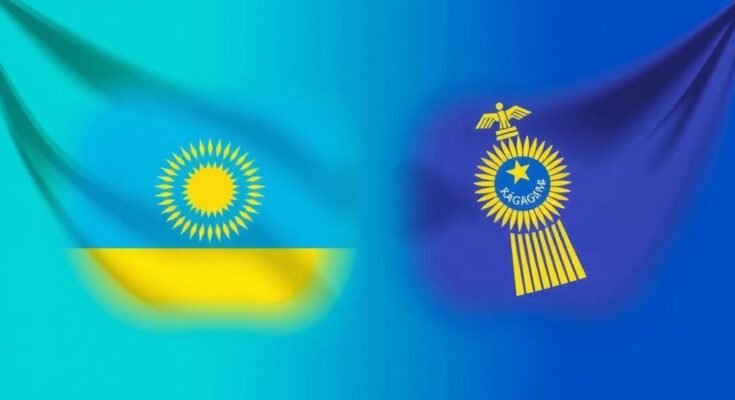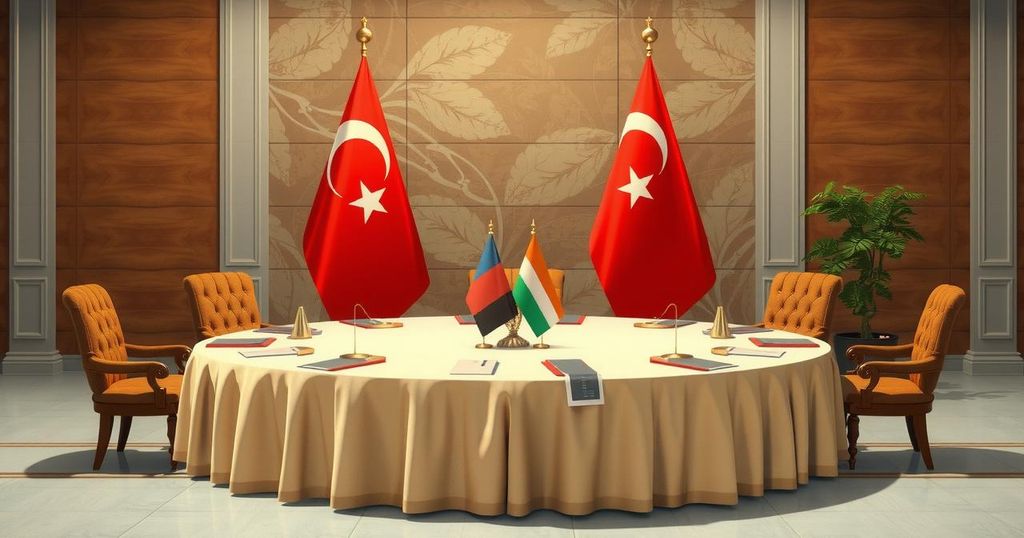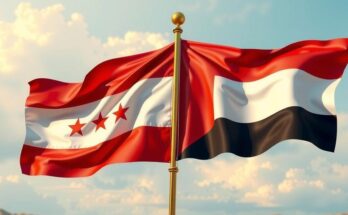Kazakhstan’s recent cooperation with Mongolia in the nuclear energy sector and significant investments in infrastructure demonstrate the nation’s strategic partnerships to enhance economic growth. President Tokayev’s initiatives, including an ongoing referendum on nuclear power and discussions with international firms, mark Kazakhstan’s commitment to become a key player in the global nuclear industry while promoting tourism in the architectural marvel of Astana.
Recent developments in Kazakhstan highlight significant collaborations with Mongolia in the nuclear sector, alongside substantial infrastructure investments and tourist attractions in Astana. On October 29, Kazakhstan and Mongolia formalized their partnership in nuclear energy through a memorandum signed between Kazakhstan’s Ministry of Energy and Mongolia’s Nuclear Energy Commission, following President Kassym-Jomart Tokayev’s visit to Ulaanbaatar. The agreement underscores both nations’ commitment to exploring joint ventures in resource extraction, including iron and rare minerals. In addition to the nuclear memorandum, a Joint Declaration was signed to establish a strategic partnership, expanding economic ties after notable agreements were reached between entrepreneurs from both countries during the Business Council meeting. Furthermore, Kazakhstan recently organized a referendum regarding a nuclear power plant’s construction, garnering over 70% support from voters. Various international firms are considering partnership opportunities for this project, including China’s CNNC, South Korea’s KHNP, France’s EDF, and Russia’s Rosatom. President Tokayev advocates for forming an international consortium to leverage advanced technology, allowing Western nations to explore engagement in Kazakhstan’s nuclear sector. A recent delegation led by Kazakhstan’s Energy Minister discussed nuclear industry collaborations with South Korean officials, enhancing potential for cooperation in oil, gas, and renewable energy sectors. Meanwhile, the Asian Development Bank approved a loan of approximately $291.49 million for road reconstruction in central Kazakhstan, aimed at improving connectivity and safety. Finally, foreign media coverage showcased Astana, highlighting its unique architecture and tourist attractions, including monumental mosques and interactive museums, making it an enticing destination for international visitors. Kazakh cuisine, characterized by its hearty meat dishes, adds to the cultural experience for tourists in the vibrant capital.
Kazakhstan has emerged as a key player in the nuclear energy sector, capitalizing on its rich natural resources and strategic geographical location. The signing of the cooperation memorandum with Mongolia indicates not only a commitment to nuclear collaboration but also highlights broader economic cooperation between the nations. The recent referendum reflects Kazakhstan’s intent to expand its nuclear capacity, encouraging international partnerships to develop this sector. In terms of infrastructure, the significant loan from the Asian Development Bank supports Kazakhstan’s ambitions to enhance road safety and connectivity, which are essential for economic growth and regional integration. Astana’s position as a cultural and architectural hub showcases the country’s modernization and appeals to international tourists, furthering Kazakhstan’s global presence.
The recent developments in Kazakhstan signal a strong commitment to expanding its nuclear energy sector through partnerships with Mongolia and engagement with Western nations. This strategic orientation not only aims to boost the economy but also enhances Kazakhstan’s role in the international community as a major player in nuclear energy and infrastructure. The vibrant culture and unique tourist attractions in Astana further enrich the country’s global image, promising opportunities for future engagement and exploration.
Original Source: en.inform.kz




